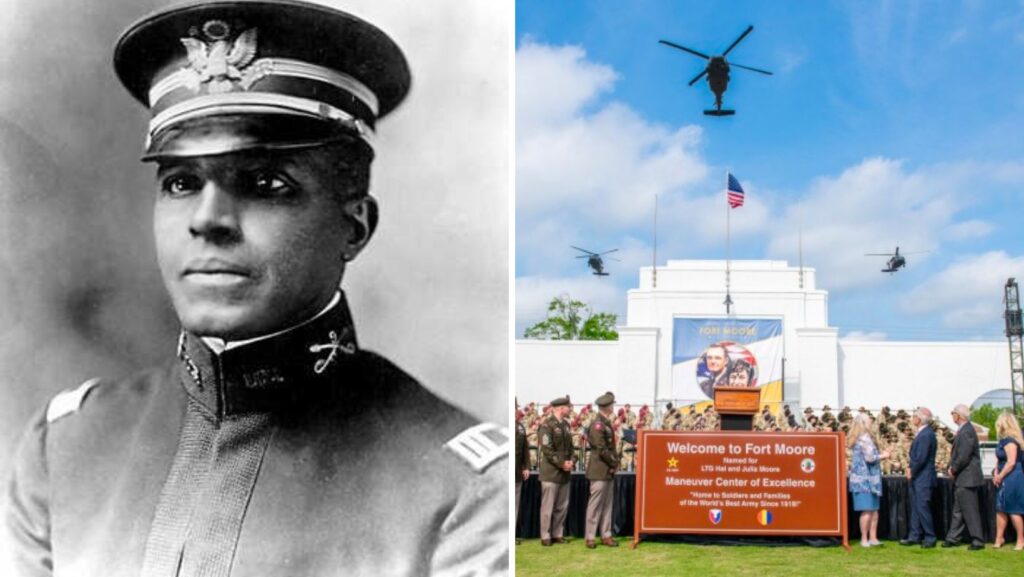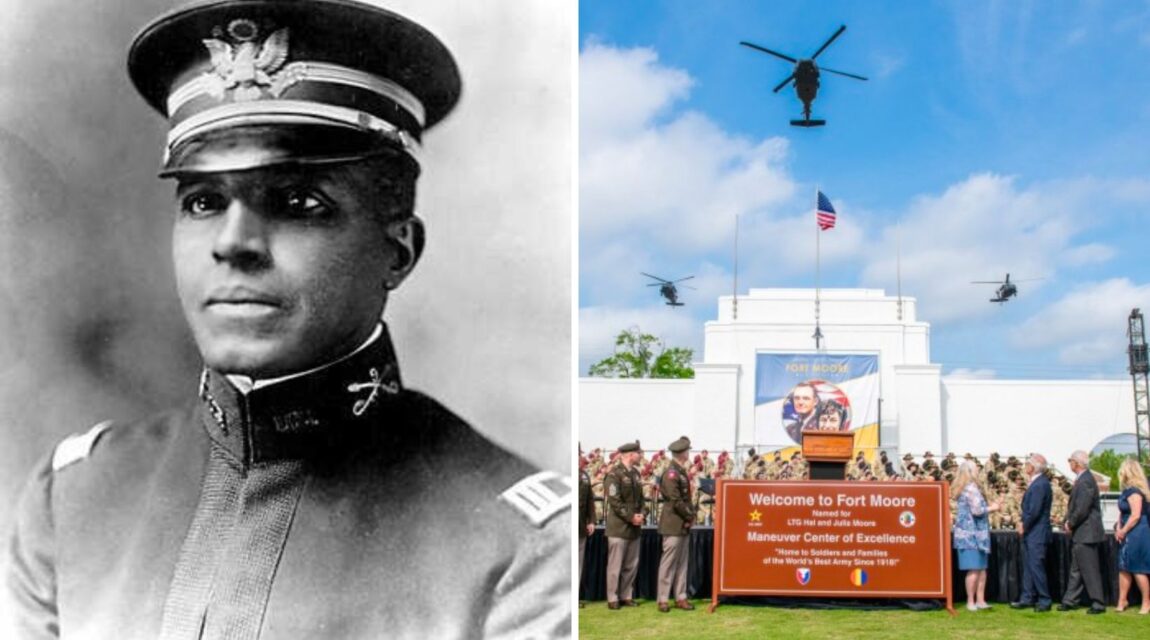
Photo credit: National Park Service Historic Photograph Collection, Public domain, via Wikimedia Commons; U.S. Army
In a groundbreaking move that embraces inclusivity, diversity, and love, Fort Benning, the renowned Army training base located in Georgia, has undergone a significant transformation and is now known as Fort Moore. This historic renaming not only honors the legacy of Colonel Charles Young, an exceptional Black officer, but also serves as a nod to a remarkable married couple, Julie and Hal Moore, whose contributions deserve recognition.
According to The New York Times, the decision to rename Fort Benning as Fort Moore follows extensive discussions and advocacy aimed at acknowledging the remarkable achievements of individuals from marginalized communities. The base’s new name pays tribute to Colonel Charles Young, a trailblazing Black officer who left an indelible mark on the United States Army.
Fort Moore is a reminder of how important love is in the military
Colonel Charles Young’s distinguished career is a testament to his resilience and unwavering commitment to service. Born in 1864, Young became the third Black graduate of the esteemed United States Military Academy at West Point, despite facing significant racial barriers. He went on to serve as a Buffalo Soldier, a diplomat, and a military attaché.
In addition to honoring Colonel Charles Young, the renaming of Fort Benning as Fort Moore also recognizes the contributions of a remarkable married couple whose love and dedication have left a lasting impact. This aspect of the renaming process was reported by The Hill, highlighting the importance of celebrating diverse narratives and stories within our society.
The inclusion of Julie and Hal in these momentous renaming underscores the significance of their relationship and the values they represent. By incorporating their legacy into the renaming, Fort Moore serves as a symbol of love, unity, and the power of shared achievements.
The decision to rename Fort Benning as Fort Moore has garnered widespread support from military officials, local community leaders, and advocacy groups alike. This inclusive gesture demonstrates the military’s commitment to progress, equality, and the recognition of underrepresented voices.
The renaming ceremony held at Fort Moore was attended by military personnel, dignitaries, and the descendants of Colonel Charles Young, emphasizing the significance of this historic event. It serves as a reminder that recognizing the diverse tapestry of our nation’s history is vital in fostering an inclusive and equitable society.
Fort Moore’s transformation represents a broader movement across the United States to reevaluate historical landmarks and monuments, ensuring that they reflect the values of a more inclusive future. By acknowledging the contributions of individuals from all backgrounds, we celebrate the richness of our collective heritage and pave the way for a more just society.
The renaming of Fort Benning is not just an act of honor; it is a profound statement that embraces the diverse fabric of our nation and reaffirms our commitment to a brighter future.






